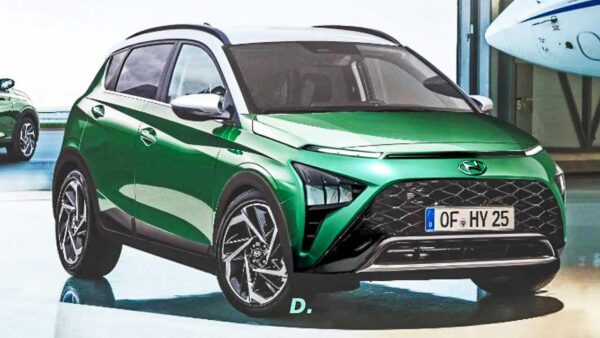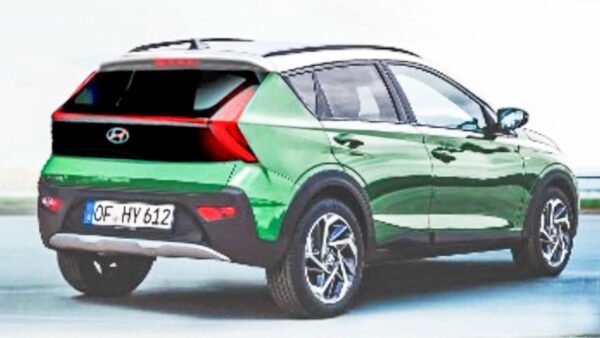
Bayon will rival Ford Puma, Toyota Yaris Cross and upcoming Volkswagen T-Cross in European markets
Successor to i20, Bayon will be Hyundai’s entry-level, B-segment SUV in European markets. It gets its name from Bayonne, a city in southwest France known for being a hub for outdoor sporting activities such as sailing and rock climbing. In that sense, Hyundai has positioned Bayon as a product that’s all about fun and exploration.
Hyundai Bayon design, interiors and key features
Bayon utilizes Hyundai’s Sensuous Sportiness design philosophy, which can be seen on various other next-gen Hyundai cars including new-gen i20. Being a derivative of i20 premium hatchback, Bayon borrows several of its design elements. Some of the key features include mesh-type trapezoidal grille, triangular headlamp casing, and top mounted sleek LED DRLs.
Bayon has thick body cladding all around and dual-tone exterior theme, which enhance its sporty profile. The hardy looking alloy wheels offer another visual treat for the eyes. The crossover also gets roof rails and shark fin antenna. At the rear, Bayon has prominent bumper, faux skid plate and trendy, boomerang styled tail lamps.
Not much info is available about interiors, but it is likely to be similar to that of 2020 i20. For example, the dashboard design and touchscreen infotainment system looks similar to new-gen i20. Bayon will be equipped with a comprehensive range of hi-tech features including Bluelink Connected Car suite, energy recovery system and wireless charging.

In terms of safety, the SUV is expected to get adaptive cruise control, lane follow assist, speed-limit adaptive system, front collision avoidance, reverse and cross collision avoidance and blind spot collision avoidance.
Hyundai Bayon engine options
Bayon will be borrowing its powertrain from new-gen Hyundai i20. The 1.2 litre naturally aspirated petrol motor is capable of delivering 84 hp of max power and 117 Nm of peak torque when mated to a 5-speed manual transmission.
The second powertrain option is a mild-hybrid system comprising a 1.0 litre turbocharged petrol motor and a 48 v electric motor. The turbo petrol unit churns out 100 hp and 171 Nm. This powertrain comes with transmission options of 6-speed manual and 7-speed DCT.

Will India get Hyundai Bayon?
In Hyundai’s Europe portfolio, Bayon will be positioned below the Kona. It will be the smallest and most affordable crossover from Hyundai in Europe. Talking about the Indian market, Hyundai SUV range starts with Venue. The need for another product in this space doesn’t seem necessary at this time since Venue is already a bestseller.
In the Indian market, Hyundai is currently looking to enter the micro-SUV segment. Its AX1 micro SUV is currently undergoing road tests. It will be positioned below Venue in the company’s line-up and take on rivals such as Maruti Suzuki S-Presso and upcoming Tata HBX.

